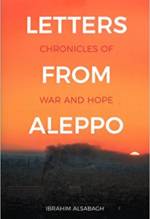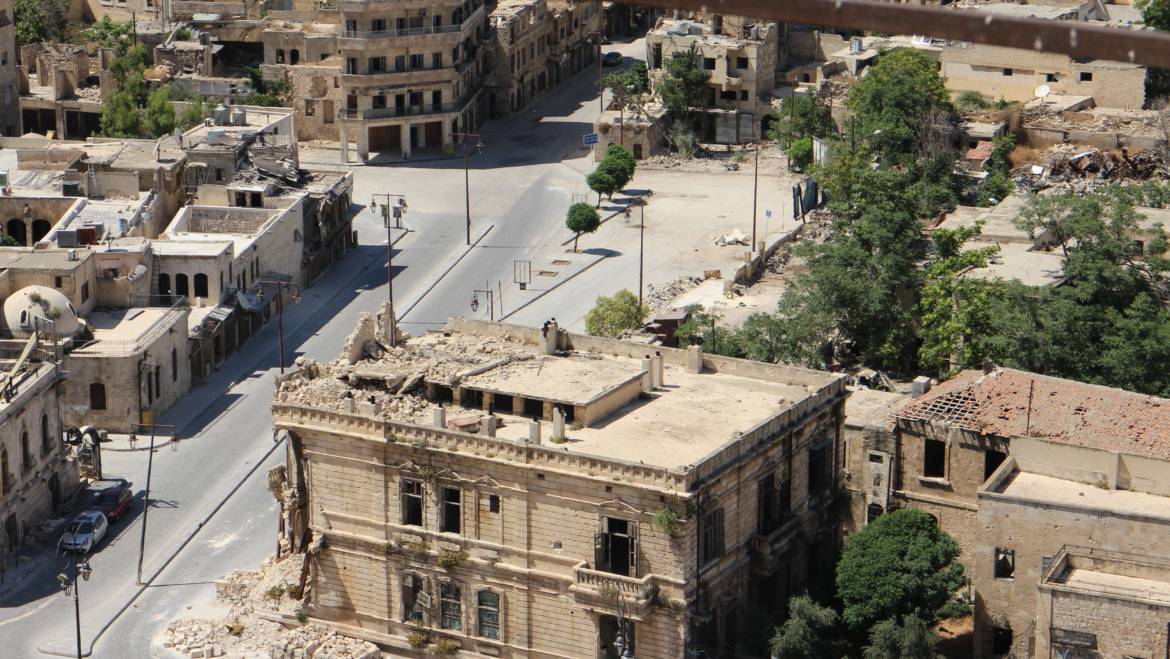Marjorie Quarton
 This book is subtitled Chronicles of War and Hope and it is not an easy book to read, but I am sure that it was even more difficult to write. Ibrahim Alsabagh, a Franciscan monk, takes everything in his stride. He does not judge often, but he sees, he takes part, he does not forget and although deeply religious, he is entirely practical. He gets on with it.
This book is subtitled Chronicles of War and Hope and it is not an easy book to read, but I am sure that it was even more difficult to write. Ibrahim Alsabagh, a Franciscan monk, takes everything in his stride. He does not judge often, but he sees, he takes part, he does not forget and although deeply religious, he is entirely practical. He gets on with it.
He describes this war without judging for the most part, except in a general way. He works hard among his flock, doing his best to take care of his sorely abused people to the best of his ability, Supported by his deeply held Christian faith, he assists anyone who calls on him with determination to help the people of Aleppo through a shocking period in their history.
Since the fractured rebellion broke out against Bashar al-Assad’s rule of Syria, they have endured five years of fighting, suffering through air raids, hunger, thirst, disease and misery. Ibrahim Alsabagh had for a time studied medicine, which must have helped him, but mainly he relies on faith and love. He circulates newsletters, writes for newspapers, always seeking help for the population. People who have forgotten how to trust come to rely on him and even to hope a little, but a new offensive by the rebel starts. It continues night and day for five days.
In October, St Francis’s Cathedral was hit, a bomb damaging the dome. This was a ‘gas’ bomb, a new horror for the population, but seems not to have created even a ripple beyond Aleppo, unlike similar attacks elsewhere. There are other references to ‘chlorine’ and to ‘canisters’. The bomb that hit the Christian church and bounced off it again did nothing compared to what it might have done. Water was scarce throughout the period and the monks worked 13 hours a day pumping it into containers for the old and infirm, as well as for victims of the bombings. Ibrahim learned that the scourge of drought could be as bad as anything that war could bring, having caused endless disease and misery to innocent and helpless people. Some said they would prefer war to drought.
Aleppo is a big city. The author compares it to Milan in size. In 2016 the banks started to review their debtors. Many people had mortgaged their houses and were totally incapable of paying their debts. When they went to Fr Ibrahim, afraid that the would have to give up their homes and become beggars, he told them, ‘We have carpets and furnishings in the monastery. We will sell those before we sell ourselves.’
By now, September 2016, Fr Ibrahim is openly asking for help with the friar’s charities. He visits the earthquake survivors in central Italy but never forgets the damaged and broken families in Aleppo, trying to put their lives back together. He writes about those people with love, but he is always practical. The war is entering a new phase, with the army fighting the Jihadists. The raids get worse and nothing changes until there is a move for the better in 2017.
The description of the horrors of war among defenceless people with no air-raid shelters, no real defences of any sort and minimal care for the injured is heart-breaking to read, a blitz without evacuation, an endless, pointless tale of despair. Of course, this is balanced to some extent with accounts of selfless courage and sacrifice among many of the people whom Fr Ibrahim encounters.
Surprisingly, the fighting has led to improved relations between the Muslim, Orthodox and Christian people, as all have been thrown together in hideous confusion. In January 2017 the leaders of the four principal religions in the area made a serious attempt to get information with a view to making the situation in Aleppo clear. For example, banks were failing and there was poverty among people who would ordinarily have been able to find money to help out. For the most part, however, the war continued and innocent people with nowhere to go and a chronic shortage of drinking water suffered horribly, as they continue to do today.
It is not easy to sum up this book. It does not have a continuous narrative and, of course, there is bound to be repetition. Fr Ibrahim has compiled several letters and articles along with the main body of the book. Born in Damascus, he has been stationed in Aleppo through years of vicious fighting. He is a truly remarkable man. He spent time in medical school before deciding to join the Franciscan friars in Aleppo. He writes from the heart as he shows what it has been like to live in Aleppo now and over the past five years. This is certainly a book that deserves to be read.
To find more thought-provoking books, check out our catalogue

